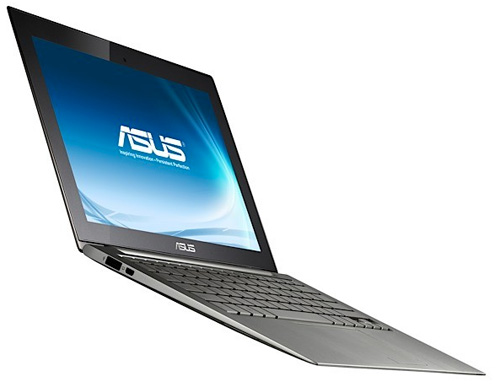Ultrabooks to Account for 43 Percent of Notebooks in 2015
Ultrabooks may have had a slow start, but they are now predicted to quickly capture market share and offer an opportunity of unexpected growth for the semiconductor industry.
IHS forecasts that 2 percent of notebooks will be ultrabooks in 2011, while the share will expand to 28 percent in 2013, to 38 percent in 2014 and 43 percent in 2015.
Consumers are predicted to initially drive the adoption of ultrabooks, but additional form factors that will integrate convertible form factors and touchscreens will allow people to use these devices as notebooks or tablets and enable the technology to attract corporate users as well, IHS believes.
"With the introduction of the ultrabook, the computing industry is poised for yet another paradigm shift," said Len Jelinek, research director and analyst, semiconductor manufacturing at IHS, in a prepared statement. "The technology now exists that actually could bring about a convergence of major mobile devices. If an attractive price point can be achieved and the consumer deems this a must-have product, the entire semiconductor manufacturing supply chain could rapidly reorient itself to serve the fast-growing ultrabook market."
Jelinek said that the ultrabook could have enough appeal to "end the current slowdown in the semiconductor and electronics manufacturing industries." The transition from hard disk drives to SSDs, especially, "will increase unit demand for flash memory while stabilizing chip average selling prices," IHS noted. In addition, a much more complex bill of materials could benefit a wide array of suppliers, and "positively impact other supply chain participants, such as battery suppliers and electronics contract manufacturers," the market research firm said.
Get Tom's Hardware's best news and in-depth reviews, straight to your inbox.

Douglas Perry was a freelance writer for Tom's Hardware covering semiconductors, storage technology, quantum computing, and processor power delivery. He has authored several books and is currently an editor for The Oregonian/OregonLive.
-
vviikkrraanntt hate ultrabooks, overpriced piece of sh!t, for that same amount i could buy an powerful pc.Reply -
joytech22 My upgrade cycle for laptops is 2-5 years.Reply
I can almost guarantee my next one won't be a ultrabook. -
love them. I don't want to replace my desktop - i need something that has good screen and last for ages.Reply
-
alidan iv lost my faith in humanity, far FAR to many time in the past because of crap like this, please, if there is any form of a god, i dont care if its christian, muslem, or even a rock, PLEASE dont let "ultra"books take off... its bad enough the air sells enough to make it a viable product line.Reply -
danwat1234 I figure in 2015 ULV X86 chips will be powerful enough to do most anything you'd want to do with them, except perhaps the latest games. I imagine a ULV Broadwell chip (and whatever AMD brings out about then) would be plenty for most people in both the GPU and CPU department. Heck, Intel Atom might finally be as powerful as a Core 2 Duo by then!Reply
I would never buy an Atom netbook, but a ULV version of a mainstream Processor, I just might. I'll wait until my Asus G50VT with a X9100@3.6GHZ dies first. -
It all depends how ultrabooks are defined. I don't think what Intel now calls ultrabooks will have 43% of the market. Thin, light notebooks in general? There's a chance they could have a large market share, but they won't be called ultrabooks because that's an Intel trademark.Reply
-
daikatana_ alidaniv lost my faith in humanity, far FAR to many time in the past because of crap like this, please, if there is any form of a god, i dont care if its christian, muslem, or even a rock, PLEASE dont let "ultra"books take off... its bad enough the air sells enough to make it a viable product line.Reply
I must disappoint you in one thing, there is no god :) However, I don't think anyone, except maybe 0.1% of all population will buy these overpriced, underpowered rubbish. -
If ultrabooks means expensive aesthetic laptops with crappy GPU/CPU power, analysts or IHS or wtv will have a painfull surprise.Reply
-
mx2138 I'm probably going to regret this because I have NEVER owned an Apple product ever but...for the prices I'd probably get a macbook air/pro just to have some bragging rights and show off like a boss.Reply
